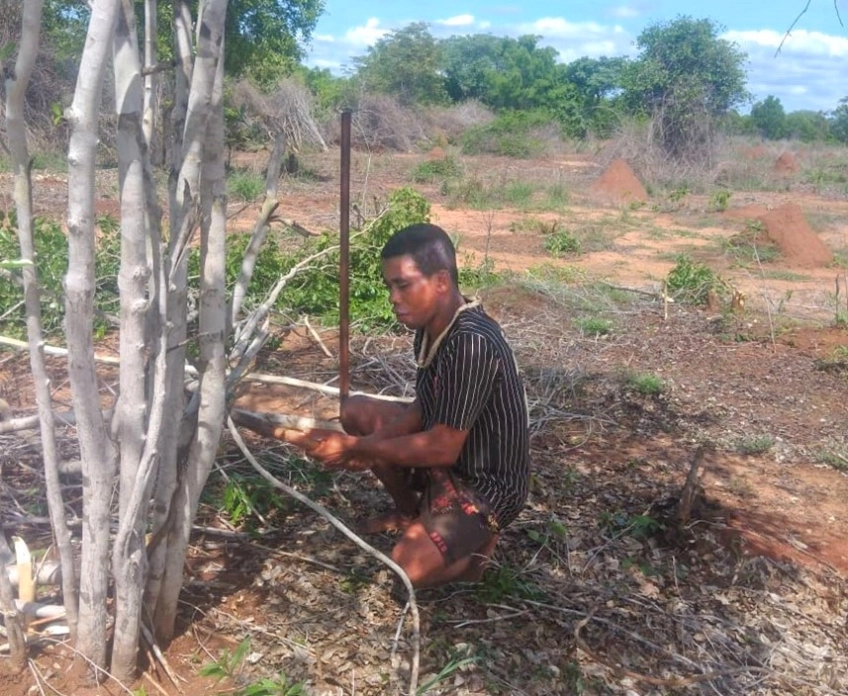Tropical forests in protected areas are often illegally invaded by people because of their seemingly “free” land and natural resources. As a result, they are prone to deforestation due to the increased demand for timber and land to grow and sell crops, together with rapid population growth that puts immense pressure on natural resources.
There is no better example than the Menabe Antimena Protected Area in West Madagascar where large numbers of migrants have been illegally entering the reserve, clearing its forests to plant corn and peanuts. Menabe Antimena is one of the most biodiverse areas on the planet, with three species being found nowhere else on Earth (including the smallest primate in the world, Madame Berthe’s mouse lemur). Despite this, over 50% of Menabe Antimena forests have been lost in just 15 years.
Mikajy is an initiative funded by USAID, where they are partnering with local authorities and communities to tackle this crisis in Menabe Antimena Protected Area. USAID has helped designate 15,170 acres of unused, non-forest state lands, known locally as Bezeky and situated 20 miles south of the reserve, for green titling, offering migrants who choose to relocate to Bezeky farmable land and other benefits.
Each migrant family relocating to Bezeky will receive five acres after four years of farming the land. USAID supports a generous livelihood package, including agriculture and alternative revenue-generating activities. In addition to receiving farmable land, these families are given access to, sustainable agriculture training, water from boreholes, social services, technical support, and support in selling their produce. With such supports in place, the migrants will be able to invest in their land and enhance its productivity, rather than resorting to degrading the Protected Area.
Unfortunately, the Bezeky area was often frequented by bandits who stole from local communities. Therefore, an armed military/police presence is essential to protect the migrants and encourage them to relocate to Bezeky. Conservation Allies provided emergency support for Project Mikajy through our partner Madagasikara Voakajy to mobilize military protection at Bezeky and ensure safety for the first 200 migrant families who voluntarily relocated here.
Among them, 25-year-old Mr. Avisoa Fidèle Randriamanana, originally from southern Madagascar, traveled with his wife and two small children to Bezeky. Before relocating, Avisoa lived inside Menabe Antimena Protected Area, where he made a living from illegal slash-and-burn cultivation in the forest. This family was determined to make a change for the better. He is hopeful that his new property will allow him and his family to live with dignity and security on their own land, not continually hiding and dodging protected area patrols.

Demonstrating his conviction, he and his family walked on foot from Menabe to Bezeky. With the support of USAID, he has already built his new home and started to develop his farm. Avisoa explained, “We had witnessed the degradation of the Menabe Antimena forest. Certainly, we did not own any land and I admit that we cultivated in the protected zone. We heard that there would be support and cultivation plots to distribute in Bezeky, so I decided to go there, even without transport. I wanted a chance to get my own land and start a new life.”
Like all the other 199 family beneficiaries, Avisoa received 5 acres of ”Green Title” agricultural land which he will own outright after four years of caring for it. The goal of Mikajy is to relocate thousands of migrants to Bezeky, protecting the beautiful forests and wildlife of Menabe Antimena.


